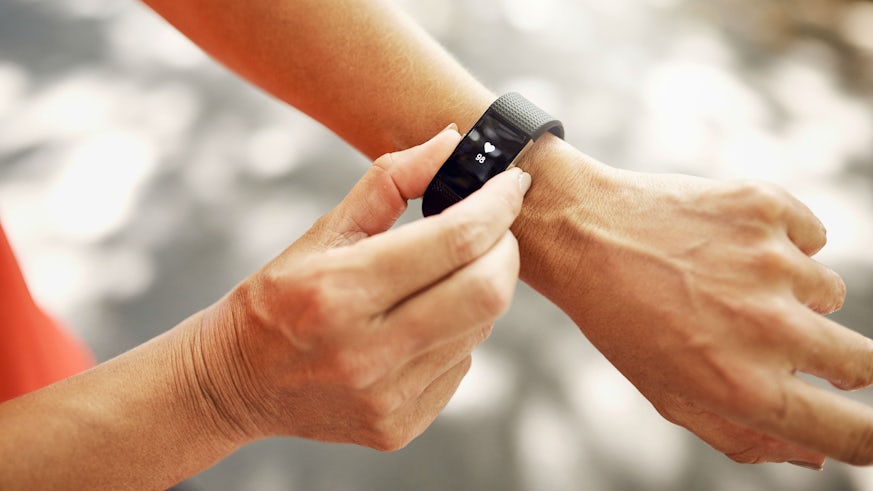Digital technology in management of Huntington’s
6 December 2018

Researchers at Cardiff University are exploring how digital technologies, such as wearable fitness trackers, can be used to help people with Huntington’s disease (HD) manage their symptoms.
As part of a £16 million collaboration to address the health and social care of people with diseases of the brain, Professor Monica Busse, from Cardiff University’s Centre for Trials Research, will lead an international team who will assess how sleep, nutrition and physical activity impact HD.
Professor Busse said: “We have already demonstrated the importance of regular physical activity in managing the symptoms of Huntington’s disease. We now want to find out more about the impact of other fundamental environmental aspects of life, alongside known genetic factors, and use this knowledge to develop lifestyle interventions.”
Huntington’s disease is an inherited neurological condition that causes difficulties with movement and coordination. It also causes cognitive impairment that gets worse over time. Symptoms usually develop when people are between 30 and 50 years old and dementia can occur at any stage of the condition. There are currently no treatments for the condition.
The new research is funded through JPND (the Joint Programme – Neurodegenerative Disease) - the largest global research initiative aimed at tackling the challenge of neurodegenerative diseases. Alzheimer’s Society led the UK funding of the initiative.
Current research suggests strong potential for improving quality of life for those living with neurodegenerative diseases, such as HD, with novel health and social care concepts, and innovations focusing on the preservation of dignity, independence and social inclusion. However, the availability and quality of such services vary considerably across Europe and beyond.
“While waiting for new treatments to emerge from basic and translational research, we need to support projects that could deliver immediate impactful developments which health and social care research and innovation may be able to achieve. This includes new insights that point to the potential for improved patient empowerment, civic participation and quality of life,” said Professor Philippe Amouyel, Chair of JPND. “Our hope is that this work will lead to the adoption of novel health promotion strategies that will reduce the impact of disease for patients as well as for their families and carers.”
Professor Busse added: “The DOMINO-HD project joins our growing portfolio of research in the area of Huntington’s disease, working closely with patients and members of the public, and is an important step with the potential to contribute significantly to our knowledge and treatment of HD, and the growing problem of well-defined dementias.”
The team in Wales will lead a consortium across Europe which includes Ireland, Spain, Poland, Germany and Switzerland.



